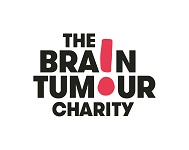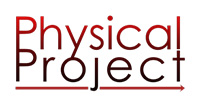Louisa Tuely is a Sports Massage Therapist, Personal Trainer and currently studying for Sport Therapist BSc.
With a passion for the Alpine mountains and an avid skier, as well as being a ski instructor in her spare time, she couldn’t resist the opportunity to support Everest in the Alps as one of our Sports Massage Therapists.
Here’s some advice on getting fit for purpose.
Multi day ski touring is a pleasure to do. Being able to go anywhere on the snowy mountains with a great team is an adventure and with Everest in the Alps it is an adventure we should all strive for.
Knowing that your physical health and fitness is top notch at the beginning of your tour gives you the confidence that you can handle whatever is thrown at you. Whether it’s the chilling alpine weather conditions, the long days or high altitude; all that preparation has been worthwhile and you can enjoy the journey.

How to train and where to begin…
I like to think of muscles being letters of the alphabet. You can’t write a story let alone a sentence with half the alphabet! All your muscles need to share the load and improve joint stability by avoiding fatigue and reducing overall injury risk. The ‘it’, ‘is’ ‘and’ ‘are’ words supporting your sentences are your core (see what I did there!) words. Activate your letters and watch the story unfold!
Start your training with full body compound strength work. Build a baseline and develop the strength of all the muscles whether they are at the back, front, side, deep or superficial. During baseline training is also the perfect time to address any injury issues that could be exacerbated as your training volume increases. Visit a Physiotherapist or Sport Therapist to give you a movement/ exercise plan to manage your injury.

Building on your baseline
Skinning for hours at a steady pace is an aerobic activity where ideally you don’t want your muscles to produce too much lactic acid. We all need a moderate amount being produced during exercise but if the gradual build-up of lactate exceeds what is being removed, muscle contraction and the ability to generate energy is inhibited causing fatigue.
Training at lactate threshold or below can train the body on how effectively to get rid of this build-up. You can be tested to work out what your lactate threshold is but training using a heart-rate monitor is just as good. The aim is to find the highest heart-rate you can sustain for a long period of time. Remember your body takes time to adapt so steady, regular sessions are ideal. Start gradually with your timings and frequency and then build on it and don’t forget to work your arms and well as your legs!
During your training as you get more aerobically fit, you’ll find your rate of breathing will drop and you will be able to get more oxygen in per breath. This is due to the muscles involved in respiration, strengthening and helping more air flow in and out of the lungs, which in turn will be beneficial when at altitude.

Now a question to ask yourself…
Can you balance on one-leg and open your hips during a kick-turn on a steep ascent?
Yoga gives you the opportunity to tap into your body and work with it. It is a fantastic way of developing your balance and increasing flexibility during a kick-turn for example. The full range of movement within your joints and spine from a yoga session helps to encourage the flow of nutrients to repair any damaged soft-tissue. During your training, areas of your body will start to feel restricted and potentially sore.
Manipulation of these restricted areas may help to improve blood circulation, decrease the feeling of stiffness and along with baseline strengthening exercises will improve flexibility. Self-massage techniques like foam rolling or if you get a chance have a Sports Massage, can help reduce muscle pain sensations, prepared your body for activity and speed up recovery.

I hope this article will help you in your preparation for one of the greatest challenge you’ll ever do: Everest in the Alps!
Louisa Tuely
(Sport Massage Therapist, Personal Trainer and Sport Therapist BSc undergrad)








